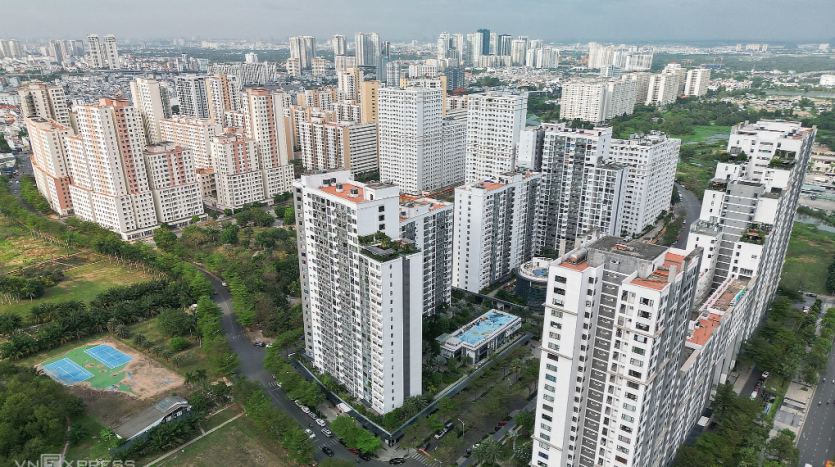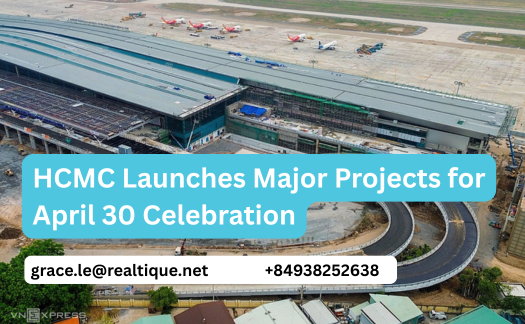FDI in Vietnam Real Estate Surges 46% in Q1 2025
Vietnam’s real estate attracts nearly $2.4B in FDI in Q1 2025, up 46% YoY, driven by urban demand, industrial expansion, and global investor interest.

Table of Contents
Foreign Investment in Vietnam’s Real Estate Soars Nearly 50% in Q1 2025
Vietnam’s property market has received a major vote of confidence from global investors, with foreign direct investment (FDI) into real estate hitting nearly $2.4 billion in the first quarter of 2025. This marks a 46% year-over-year increase, underscoring growing international interest in one of Southeast Asia’s most dynamic and urbanizing markets.
According to a recent report from the Foreign Investment Agency under the Ministry of Planning and Investment, Vietnam recorded nearly $11 billion in total FDI registrations in Q1, up over 34% from the same period last year. Real estate accounted for over 21% of this total, making it the second most attractive sector after manufacturing.
Real Estate Registers Strongest Quarterly Surge in Years
Breaking down the figures, newly registered capital in real estate reached $1.1 billion, representing 26% of all new FDI inflows in Q1. When including additional capital from existing projects and share purchases, the total FDI into real estate reached $2.39 billion—the strongest Q1 showing in several years.
This performance confirms that Vietnam’s property market remains a key magnet for global capital despite broader economic uncertainties. Analysts attribute this surge to both urbanization pressures and Vietnam’s strategic role in global supply chains.
Who’s Investing: Singapore Leads, Followed by China and Taiwan
In terms of foreign investor nationality, Singapore once again topped the chart, contributing over $1.3 billion, or nearly 31% of all newly registered FDI. China, Taiwan, and Japan followed as key contributors, continuing a long-standing trend of East Asian interest in Vietnamese real estate and infrastructure.
Singapore’s dominance is consistent with its long-term investment strategy in Vietnam, often channeled through industrial park developers, property conglomerates, and logistics operators.
What’s Driving the Surge?
Leading real estate consultancies like Avison Young and Savills agree that the Q1 boom reflects Vietnam’s growing appeal as an investment destination. A blend of strategic geography, cost competitiveness, and a resilient domestic market is helping the country stand out in Asia.
Avison Young CEO David Jackson noted that FDI investors see Vietnam as a diversification hub in the global supply chain—a theme that has only intensified since the pandemic and ongoing geopolitical shifts. Vietnam’s young labor force, low operating costs, and improving infrastructure continue to attract multinationals looking to hedge against single-country exposure.
Savills echoed this view, highlighting that rapid urbanization is fueling demand across all property segments, from residential and retail to industrial and office. Many foreign investors believe demand will continue to outpace supply in Vietnam’s largest cities, particularly Ho Chi Minh City and Hanoi.
A Promising Start to 2025
Leading real estate consultancies like Avison Young and Savills agree that the Q1 boom reflects Vietnam’s growing appeal as an investment destination. A blend of strategic geography, cost competitiveness, and a resilient domestic market is helping the country stand out in Asia.
Avison Young CEO David Jackson noted that FDI investors see Vietnam as a diversification hub in the global supply chain—a theme that has only intensified since the pandemic and ongoing geopolitical shifts. Vietnam’s young labor force, low operating costs, and improving infrastructure continue to attract multinationals looking to hedge against single-country exposure.
Savills echoed this view, highlighting that rapid urbanization is fueling demand across all property segments, from residential and retail to industrial and office. Many foreign investors believe demand will continue to outpace supply in Vietnam’s largest cities, particularly Ho Chi Minh City and Hanoi.
Ready to invest smartly in Vietnam’s real estate market?
📩 Reach out to Realtique for insider insights, expert guidance, and exclusive property deals tailored for international investors.






